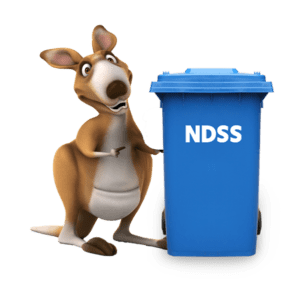NationalShred: Secure and Sustainable


The Leader in Shredding Solutions
Securely shred with the local experts! 33+ years of experience in confidential document and e-waste destruction. Protect your privacy with us.
Shredding Industry Queries | Answers to Shredding Industry FAQ
What Our Customers Say About Us
EXCELLENTTrustindex verifies that the original source of the review is Google. It was a very easy process with great communication.Posted onTrustindex verifies that the original source of the review is Google. Great fast service and pick upPosted onTrustindex verifies that the original source of the review is Google. Great guy called on site and was very friendly and courteous. Was a great help! Thanks.Posted onTrustindex verifies that the original source of the review is Google. We recently used National Document Shredding Service and it was a very positive experience. Booking a security bin was seamless and easy. Peta gave excellent customer service by replying promptly and being easy to deal with while maintaining a sense of professionalism. The bin was delivered and collected on time. They also listened to our special instructions of picking up our bin between a certain time. We will definitely use them again. Highly recommended. - Jill Franco, Parish SecretaryPosted onTrustindex verifies that the original source of the review is Google. Very efficient and reasonably priced shredding service. We have used them several times and will continue to do so.Posted onTrustindex verifies that the original source of the review is Google. Simple positive experience from ordering right through to collectionPosted onTrustindex verifies that the original source of the review is Google. Very easy to organise collection bins on the website. They were delivered and collected on time. Would certainly recommend National Document Shredding Service Pty Ltd.Posted onTrustindex verifies that the original source of the review is Google. Prompt and professional service at a reasonable price made it easy. It was great to discover a service they comes to Central Victoria, too.
Shredding Industry Queries | Answers to Shredding Industry FAQ
Shredding industry FAQ
Welcome to our comprehensive FAQ guide about the shredding industry. We understand that you may have several questions about shredding services, document destruction, and maintaining the security of your sensitive information. In this article, we address the most frequently asked questions about shredding to provide you with the knowledge you need for secure and efficient document disposal.
Shredding Industry Queries | Answers to Shredding Industry FAQ


Shredding is the process of destroying confidential or sensitive documents or materials into small pieces to prevent unauthorised access or misuse.
Shredding is important to protect sensitive information from falling into the wrong hands and to comply with privacy laws and regulations.
On-site shredding involves a mobile shredding truck coming to your location to shred documents, while off-site shredding means documents are collected and transported to a shredding facility.
When considering the total load in a bin wheel for documents, several factors must be taken into account to ensure safety, efficiency, and compliance with service requirements:
Dimensions – Weights – Standards Nominal v
Volume: 240 litres
Net weight: approx 13 kg
Affordable load capacity: 50Kg
Maximum Load Capacity: 75 kg
Permitted Total Weight: 90 kg (including the weight of the bin)
Height: 1060 mm
Width: 990 mm
Depth: 730 mm
To estimate the weight of paper in a bin, you can use the following formula:
Total Weight (kg) =Volume (liters) × Density (kg/liter)
Example Calculation:
Estimate Density:
For loose office paper, the density is approximately 0.208 kg/liter.
Calculate Maximum Load for a 240-liter Bin:
Total Weight = 240 liters × 0.208 kg/liter = 49.92 kg
The maximum load for a 240-liter bin for shredding documents is 90 kg, but for practical purposes, it’s advisable to keep the load between 50-70 kg to ensure safe handling and compliance with service guidelines.
Reasons for Load Limits:
Safety: Overloading bins can make them difficult to move and increase the risk of injury to those handling the bins.
Equipment Limitations: Bins and their wheels are designed to support a specific maximum weight. Exceeding this limit can damage the bins and the collection equipment.
Collection Efficiency: Service providers need to handle and empty the bins efficiently. Overloaded bins can slow down this process and increase operational costs.
Regulatory Compliance: Ensuring bins are not overloaded helps comply with workplace safety regulations.
Reputable shredding services employ strict security measures to ensure the confidentiality and integrity of the shredding process, including secure transportation and background-checked personnel.
Yes, shredded paper can be recycled. Many shredding companies work with recycling partners to ensure the shredded materials are properly recycled.
Some shredding services offer electronic media destruction, including hard drives, CDs, and USB drives, to securely dispose of digital data.
The frequency of shredding depends on your needs and the volume of documents generated. Regularly scheduled services, such as monthly or quarterly, are common for businesses.
Outsourcing shredding services saves time, ensures compliance with data protection laws, reduces the risk of identity theft, and allows for secure disposal of confidential information.
Shredded materials are typically baled and sent to paper mills for recycling. Some shredding services provide certificates of destruction as proof of secure disposal. legal requirements for document shredding?
Depending on your industry and location, there may be legal requirements mandating the secure destruction of certain types of documents. It’s important to be aware of and comply with such regulations.
Absolutely! Shredding services cater to both businesses and individuals who want to securely dispose of their confidential documents.
The cost of shredding services can vary based on factors such as the volume of documents, frequency of service, location, and additional requirements like on-site shredding. It’s best to contact local shredding service providers for specific pricing information.
Professional document destruction services help protect confidential information, ensure compliance with privacy regulations, reduce the risk of identity theft, and maintain the security of your business.
We cater to both individuals and businesses, providing secure document destruction solutions to meet their specific needs.
Schedule services in shredding refer to the recurring and predetermined intervals at which document destruction activities take place. Whether it’s weekly, fortnightly, monthly, bi-monthly, or a customized schedule, this approach ensures consistent and secure disposal of sensitive information. By opting for schedule services, organizations can maintain compliance, establish a routine, and efficiently manage their document shredding needs, ultimately enhancing data protection measures.
Shredding bags are specially designed bags that can hold approximately 5 archive boxes of documents. You can fill these bags with confidential materials, and we will collect and securely shred the contents.
We offer shredding bags at a competitive price of $89 for two bags. Each bag has a capacity equivalent to 5 archive boxes.
Our 240L secure bin is an excellent choice for businesses requiring a larger capacity for document disposal. Starting at $102 (including GST) for a four-week period, it provides a secure solution for disposing of confidential documents.
Yes, we provide shredding services Australia-wide. Regardless of your location, we can assist you with secure document destruction.
Polyurethane.
Please note the following items cannot be inside the secure document bins due for destruction: Cardboard, Arch Lever Folders, Plastic Sleeves and Binders, Magazines and Photo paper, Newspapers, Bulldog clips, Hard covers from diaries, books, etc. **Please note there is an applicable contamination fee of $110-$300 +GST per bin should there be any mixed content in the secure document paper bins.**
Yes, you can store the shredding bin securely on your premises until it is full. We recommend placing the bin in a locked area to prevent unauthorized access.
Our standard bin colour is blue. However, bin colours may vary depending on your location. Please contact our customer support for specific information about bin colours in your area.
Delivery times may vary depending on your location and the availability of our contractors.
We hope this FAQ guide has addressed your initial questions about the shredding industry. If you have any further inquiries or would like to learn more about our shredding services, please don’t hesitate to contact us. Our team of experts is here to assist you in ensuring the secure disposal of your confidential information.
Here are some reputable sources that provide information about personal information protection in Australia:
Office of the Australian Information Commissioner (OAIC):
- Website: https://www.oaic.gov.au/
- The OAIC is the independent authority in Australia that promotes and protects the privacy of individuals. Their website offers comprehensive resources on personal information protection, privacy laws, and individual rights.
Australian Privacy Foundation (APF):
- Website: https://privacy.org.au/
- APF is a non-profit organization dedicated to protecting the privacy rights of individuals in Australia. Their website provides information on privacy issues, advocacy, and resources for individuals and organizations.
Australian Competition and Consumer Commission (ACCC):
- Website: https://www.accc.gov.au/
- The ACCC is Australia’s competition and consumer protection agency. They provide information on various consumer rights, including privacy rights, and offer resources on protecting personal information.
- Stay Smart Online:
- Website: https://www.staysmartonline.gov.au/
- Stay Smart Online is the Australian Government’s online safety and security website. They provide advice and resources on protecting personal information online, including tips for individuals and small businesses.
Australian Communications and Media Authority (ACMA):
- Website: https://www.acma.gov.au/
- ACMA is the regulatory authority for the communications and media sectors in Australia. Their website offers information on privacy, including guidance on protecting personal information in the context of telecommunications and online services.
